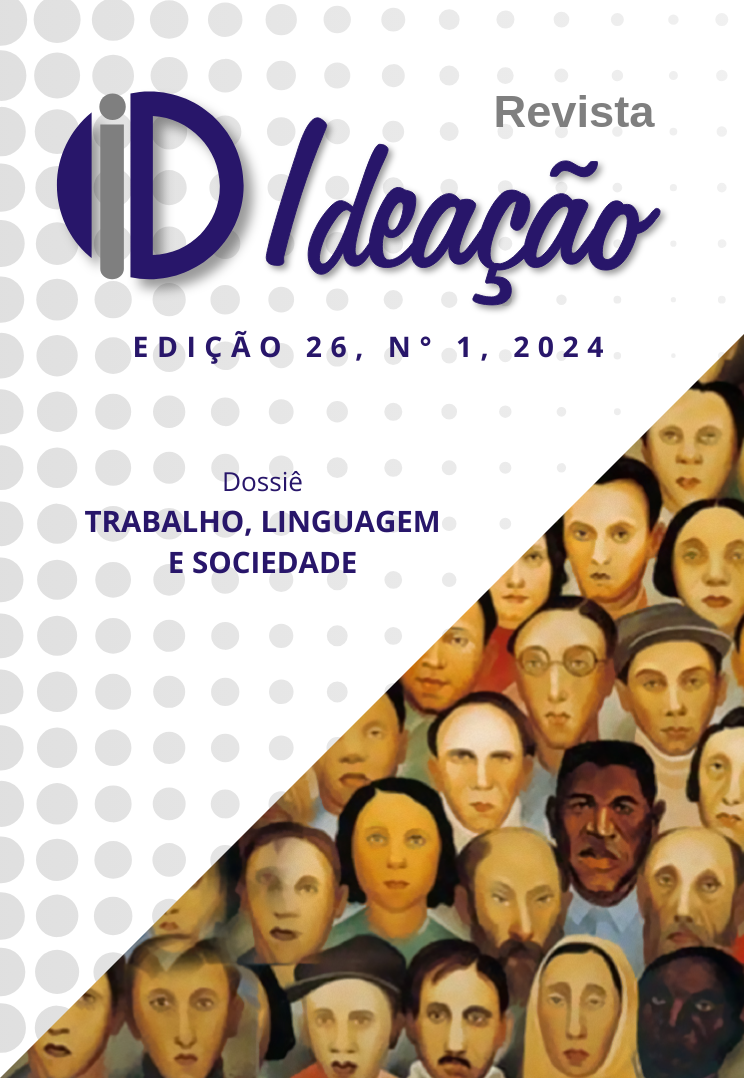Criticism of peruvian colonization and cultural tensions in Yawar Fiesta, by José María Arguedas
DOI:
https://doi.org/10.48075/ri.v26i1.31763Keywords:
Decoloniality, Arguedas, Cultural Identity, Peruvian SocietyAbstract
Culture plays an extremely important role for society, it dictates human functions, behaviors, beliefs and the way in which the being sees and appreciates the elements of nature. Cuche (2002) points out that the meeting of cultures is not limited to global societies, but also between subjects who share the same social space. Thus, the work in question proposes to analyze in the work Yawar Fiesta (2006), initially published in 1941, by the Peruvian writer José María Arguedas, the meeting of cultures (Quechua and Spanish) in the social practices that generate inequalities between groups in Peru . The title of the work produces a symbolic adornment that runs through the entire narrative. Merging statements in Quechua and Spanish, the author presents particularities of both cultures. To support this investigation, we will use the contributions of Cuche (2002) when he states that the cultural identity of a people can only be understood by studying their relations with neighboring groups; Walter Mignolo (2005) when questioning the European discourse regarding progress and salvation, which leads to a division between peoples; Aníbal Quijano (2005). The methodology used will be qualitative bibliographical research.
Downloads
Published
How to Cite
Issue
Section
License
Copyright (c) 2023 Direitos partilhados conforme licença CC BY-NC-SA 4.0

This work is licensed under a Creative Commons Attribution-NonCommercial-ShareAlike 4.0 International License.
Authors who publish in this journal agree with the following terms:
1. Authors maintain copyright and grant the journal the right of first publication, with the work simultaneously licensed under the Creative Commons Attribution License that allows the sharing of the work with recognition of authorship and initial publication in this journal.
2. Authors are authorized to assume additional contracts separately, for non-exclusive distribution of the version of the work published in this journal (e.g., to publish in an institutional repository or as a book chapter), with acknowledgment of authorship and initial publication in this journal.
3. Authors are allowed and encouraged to publish and distribute their work online (e.g., in institutional repositories or as a personal page) at any point before or during the editorial process, as this may generate productive changes, as well as increase the impact and citation of the published work (See The Effect of Free Access).
Creative Commons License
This work is licensed under a Creative Commons Attribution-Noncommercial-ShareAlike 4.0 International License, which permits sharing, copying, distributing, displaying, reproducing, the whole or parts provided it has no commercial purpose and the authors and source are cited.


